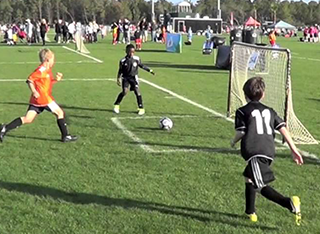
Thanks to its newfound popularity, soccer reached other areas of television in the ’90s. The crew of the show traveled across the country with the so-called Fan Toilet, a ministry set up as a public toilet, where ordinary fans could sit in on the camera. For the madrid barcelona premium seating tickets you can now have the best deal.
- 1996 was the highlight of the ’90s. The British pop struggle for musical and cultural independence was raging, and behind the social tensions, the hope of a Labor Party renewal was sparked. Everyone was full of hopes for a brighter future that eventually turned to indifference or anger when it turned out that everything would remain as it always had. When England was drawn into a group with the Scots, fans were no longer flagging the British flag, but the English flag: the first stumbling blocks to the disintegration of independent English consciousness, and perhaps the United Kingdom. In 1997 Tony Blair expanded the rights of the Scottish and Welsh Parliaments, and the 1999 Good Friday Convention allowed Northern Ireland to move closer to the Republic of Ireland.
- All in all, the 1996 European Championship was not the best tournament: with the exception of Wembley, the audience was low enough and there were few goals, yet a big soccer ball, with British popping from the speakers. It may sound trite, but it’s fun to host an international tournament. It is probably due to the low international respect of the FA that despite the five-star stadiums built on Premier League assets, the English have only been able to hold an international tournament in half a century.
Although the English fell in the semi-finals, Eb could not stop the feeling of life that came to be known as Cool Britannia. At that moment, everything seemed amazingly exciting. But it is undeniable that a generation of eminent wrecks from the 1980s filled the nation with astonishing optimism. Then everything seemed possible.
The New Sound
For the first time in 1994, the phenomenal medium that the gentle reader now holds in his hands was published. Because we want to stay modest, we don’t polish ourselves for a while, but FourFourTwo has always been proud to address an intelligent, thoughtful soccer fan.
In the ’80s, the discerning soccer fan didn’t have much to read, but in October 1990, when Gazza’s tears did not dry, the first 90 Minutes came out, which was then edited by Dan Goldstein and Paul Hawksbee in a tight bedroom in Blackheath. The laid-back style of the cheap weekly magazine resembled Harry Hill’s TV show Burp, where Hawksbee helped.
“Soccer” Suspense The Door
In the ’90s, soccer crawled into the living room, pressed in the press, and even climbed to the bookshelf. Before 1990, most soccer books were simple tarps: a quick typing CV or a forgettable doodle for Christmas. Of the top 50 soccer books compiled by FourFourTwo, only five were written before 1990.
Before the 1990 World Cup, the word ‘soccer’ in England meant the prank of stupid, violent hooligans, says Pete Davies. There was no dinner theme. Today, of course, you can start a conversation anywhere. The truth is, it was not worth mentioning because everyone was ashamed. And so, of course, no one wrote about it: in 1989, there was simply no good book on soccer.
